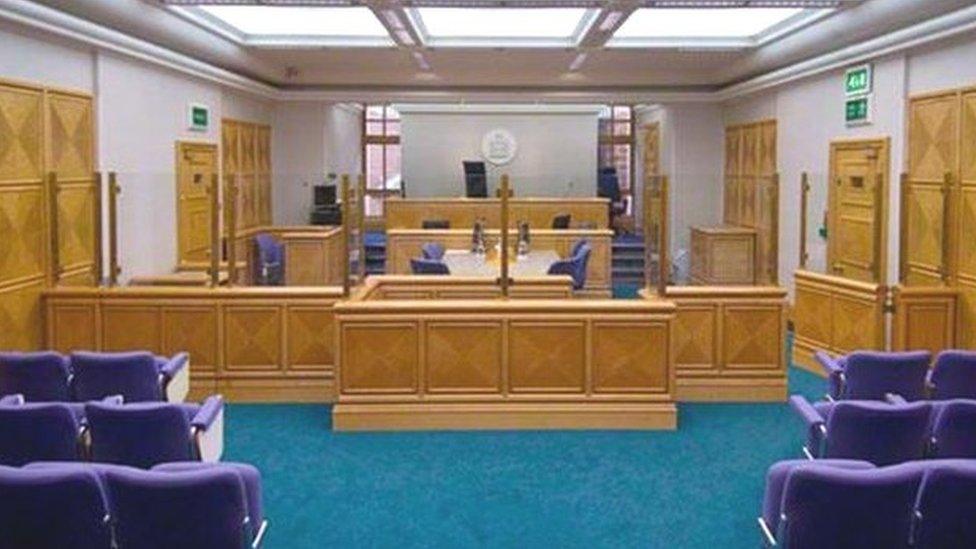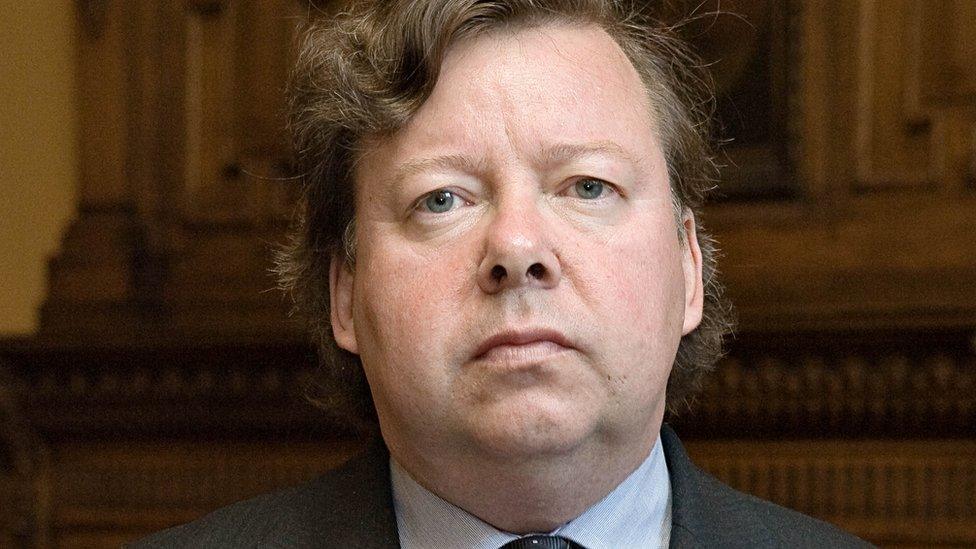Scottish Sentencing Council comes into force
- Published

A new sentencing council for Scotland has come into force.
The council is an independent body responsible for preparing guidelines to help ensure a consistent approach to sentencing throughout Scotland.
It will also work to raise public awareness and understanding of sentencing practice.
It is made up of 12 members who reflect a balance of expertise and interests across the criminal justice system, including victims' issues.
The 12 members are five judicial office holders, three legal members, a police officer, a victims' representative and another non-judicial member.
Council members:
Lord Carloway (Lord Justice Clerk, council chairman)
Lord Turnbull (senator member)
Sheriff Principal Ian R. Abercrombie QC (sheriff principal member)
Sheriff Norman McFadyen (sheriff member)
Allan Findlay (stipendiary magistrate member)
Gillian Thomson (justice of the peace member)
Catherine Dyer (Crown agent, prosecutor member)
Stephen O'Rourke (advocate member)
John Scott QC (solicitor member)
Val Thomson (assistant chief constable, constable member)
Sue Moody (lay member with knowledge of victims' issues)
Prof Neil Hutton (lay member).
The council will be chaired by the Lord Justice Clerk Lord Carloway, who said: "The council is something entirely new for Scotland.
"Sentencing is much more complex than it sometimes appears - there can be many different factors involved.
"The council will work to raise awareness and understanding of sentencing practice - not only for our justice partners but for the wider public - helping to build confidence in our justice system.
"I expect the council to take Scotland into a new era, in which we pursue a more principled approach to sentencing with improved consistency. This will be at the heart of our programme."

The sentencing council will be chaired by Lord Carloway
Justice Secretary Michael Matheson said: "The creation of the Scottish Sentencing Council is extremely important for the criminal justice system in Scotland and I welcome today's official launch.
"We know that sentencing can be an extremely complicated and emotive issue which is why we want to provide greater clarity and openness around why and how sentences are decided."
He added: "While the independence of Scotland's judiciary of course remains a fundamental part of the Scottish legal system, as does judicial discretion in individual sentencing decisions, the council will help to ensure transparency and consistency in all sentencing decisions made in Scotland, as well as helping the public better understand the sentencing process."
Council member Sue Moody, who has knowledge of victims' issues, added: "The council is good news for the victims of crime in Scotland.
"It will help to demystify sentencing for the public, and will ensure that the interests and needs of victims are taken into account when sentencing guidelines are prepared. This is an important opportunity for victims to contribute their views."
The council will prepare guidelines, along with their likely effects, for approval by the High Court. In sentencing offenders, the Scottish courts must take these guidelines, if applicable, into account - or give reasons for not doing so.
The council will also:
help develop sentencing policy
conduct research into sentencing practice
publish information about sentences
provide general advice and guidance on sentencing
publish guideline judgments (these are court opinions which provide guidance on sentences in similar cases)
The High Court, new Sheriff Appeal Court and Scottish ministers can request the council to prepare or review sentencing guidelines on any matter.